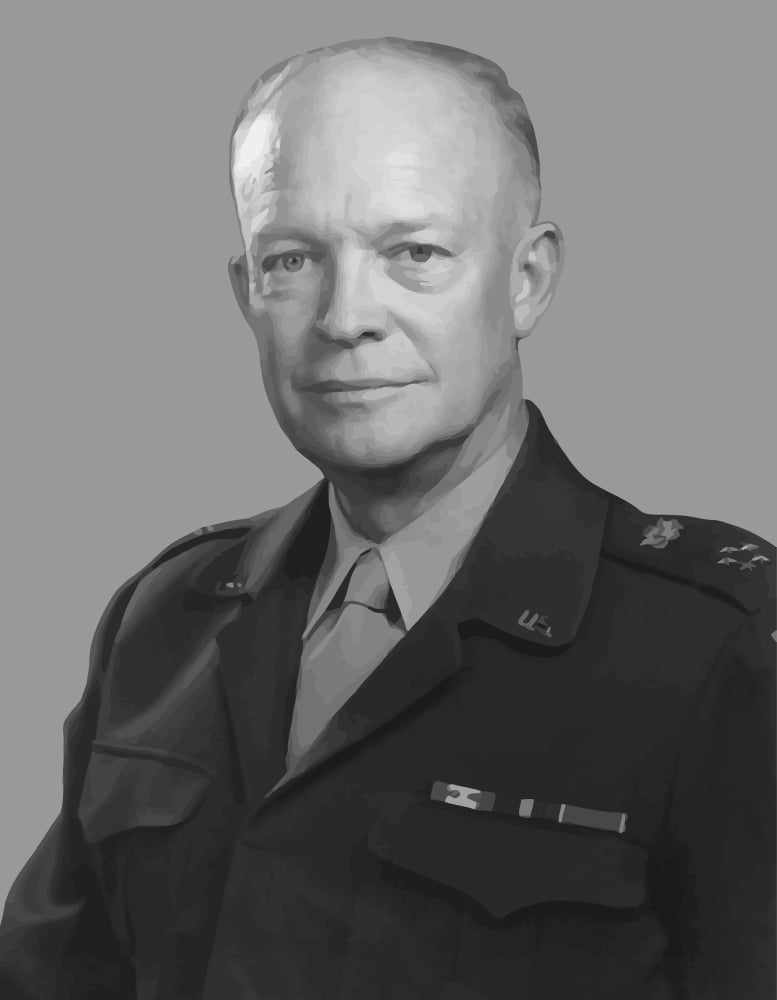

He was promoted permanent captain in May 1917. In April 1917, as the nation girded for entry into World War I, Ike was temporarily drawn into training an Illinois National Guard regiment, then transferred to help form the new 57th Infantry Regiment. Second Lieutenant Eisenhower and his bride, Mamie Doud Eisenhower, in San Antonio, Texas, 1916, where he was assigned to the 19th Infantry Regiment at Fort Sam Houston. He later wrote, “The decision was to perform every duty given me in the Army to the best of my ability and to do the best I could to make a creditable record, no matter what the nature of the duty.” The test of this credo came soon enough. During the four-day period when this crisis came to a head, he opted for Mamie and thus found himself ready to buckle down and excel at his career as an infantry officer. Ike thought of taking up flying, but in the brief months between engagement and marriage his future in-laws had firmly laid down the law: If he took up flying, he must give up Mamie. The couple became engaged on February 14, 1916, Valentine’s Day, and they were married on July 1. There, in addition to coaching the football team at a local military academy, Ike met and courted Mamie Doud. Second Lieutenant Eisenhower’s first posting was to the 19th Infantry Regiment as Fort Sam Houston, in the back lot of San Antonio, Texas. Two of its members would be among only five U.S. His class, more than any other, would be touched by History, would be known in due course as the Class the Stars Fell On. The youthful West Point graduate,Ĭadet Eisenhower was awarded his commission in the infantry in June 1915, having graduated 61st of 164. He learned and suffered conformity enough to keep his standing as a cadet, but he also evidenced a brilliant mind for the practical joke.
#Allied supreme commander free#
He suffered an injury to his knee that ended his playing days and nearly cost him his free education. He excelled at football, however, in such an excessive manner that he would have been remembered solely for his game had history not fallen on his shoulders. Some of his professors considered him very bright, others less so. He was appointed a cadet in 1911 and began as a brand new one on June 14 of that year.Īs in high school, Ike was a so-so student, apt to expend most of his energy in study he liked and very little in all else. He had to settle for his free education at the United States Military Academy at West Point.

Indeed, by the time he got around to seeking an appointment to Annapolis in 1910, he had slipped beyond the maximum age for a new cadet. To help the two elder of his four brothers get started in college, as well as help feed the entire family, Ike put off his own dreams for a few years to simply earn money. Raised in humble circumstances within miles of the geographical and geodetic centers of the vast United States, Ike naturally focused his ambitions on a career in the Navy, sought an appointment to the United States Naval Academy as one in a long, long line of seekers after an excellent free college education. His schoolmates called him “Ike,” and that is the name that really stuck no last name is ever needed when mention of him comes up, just plain Ike does the job. The rearrangement became permanent and, at some point, legal. It is known that his given names were rearranged because he was named David after his father and that his mother called him Dwight to avoid confusion. Dwight David Eisenhower began life as David Dwight Eisenhower in Abilene, Kansas, on October 14, 1890, the third of five sons.


 0 kommentar(er)
0 kommentar(er)
